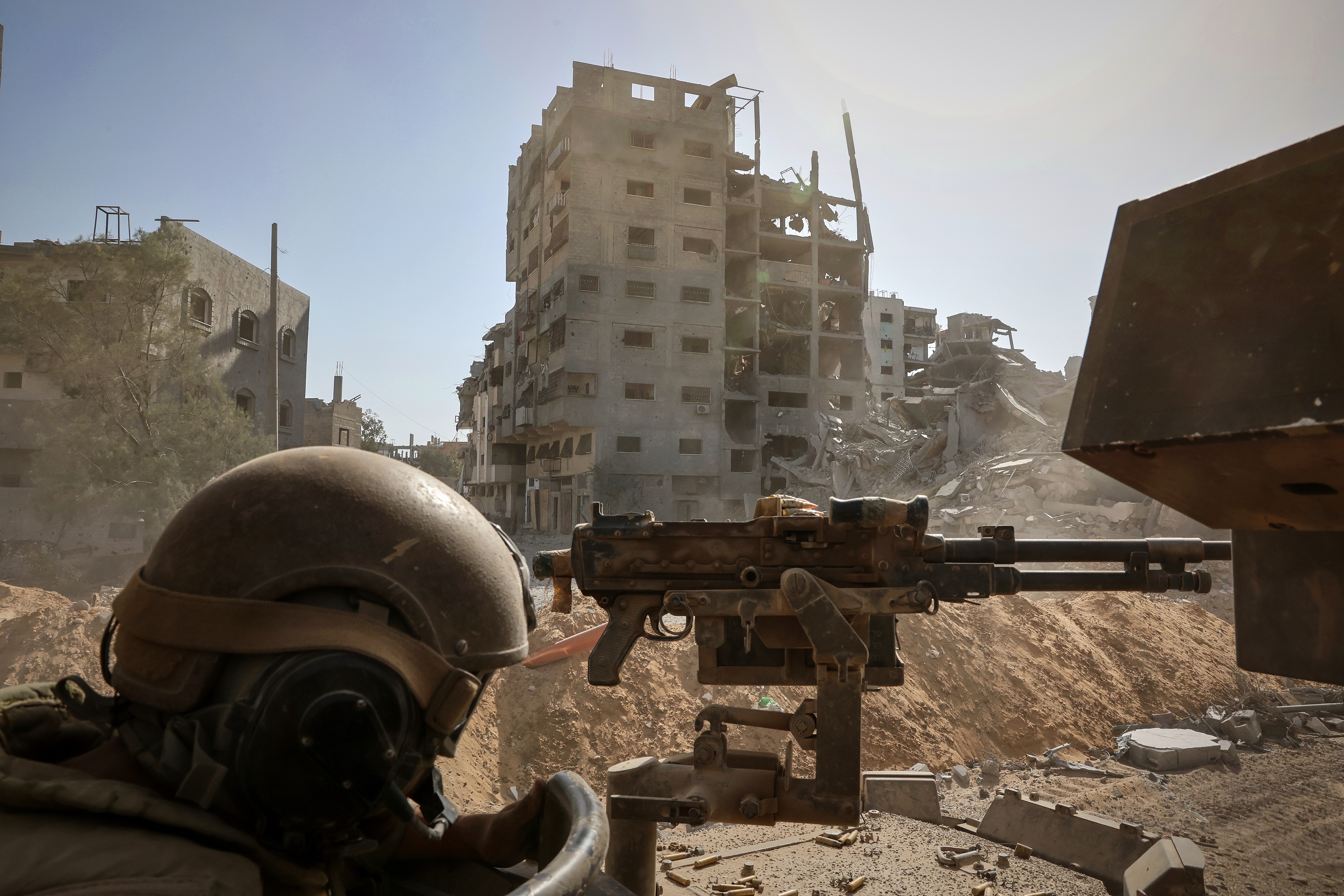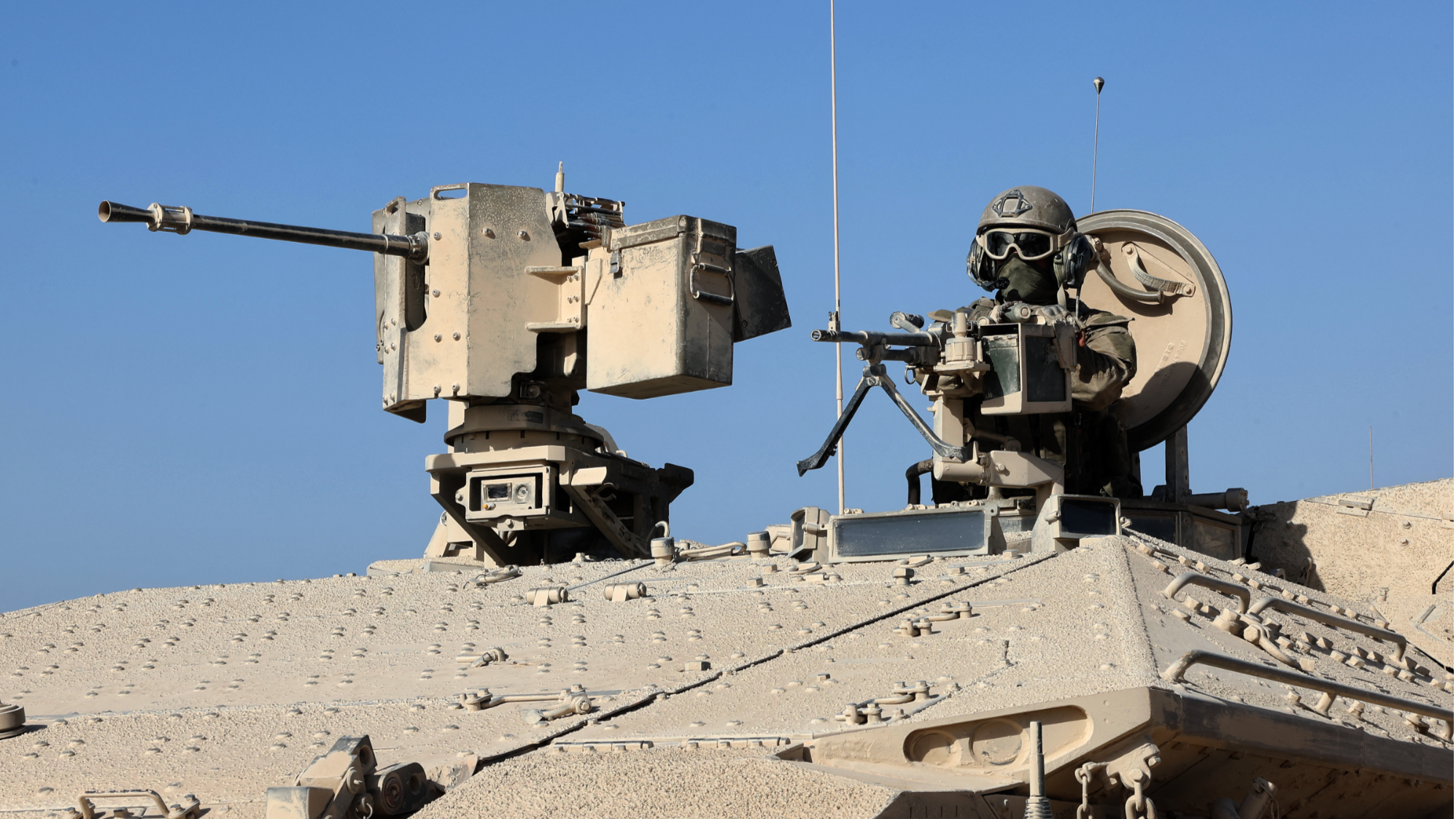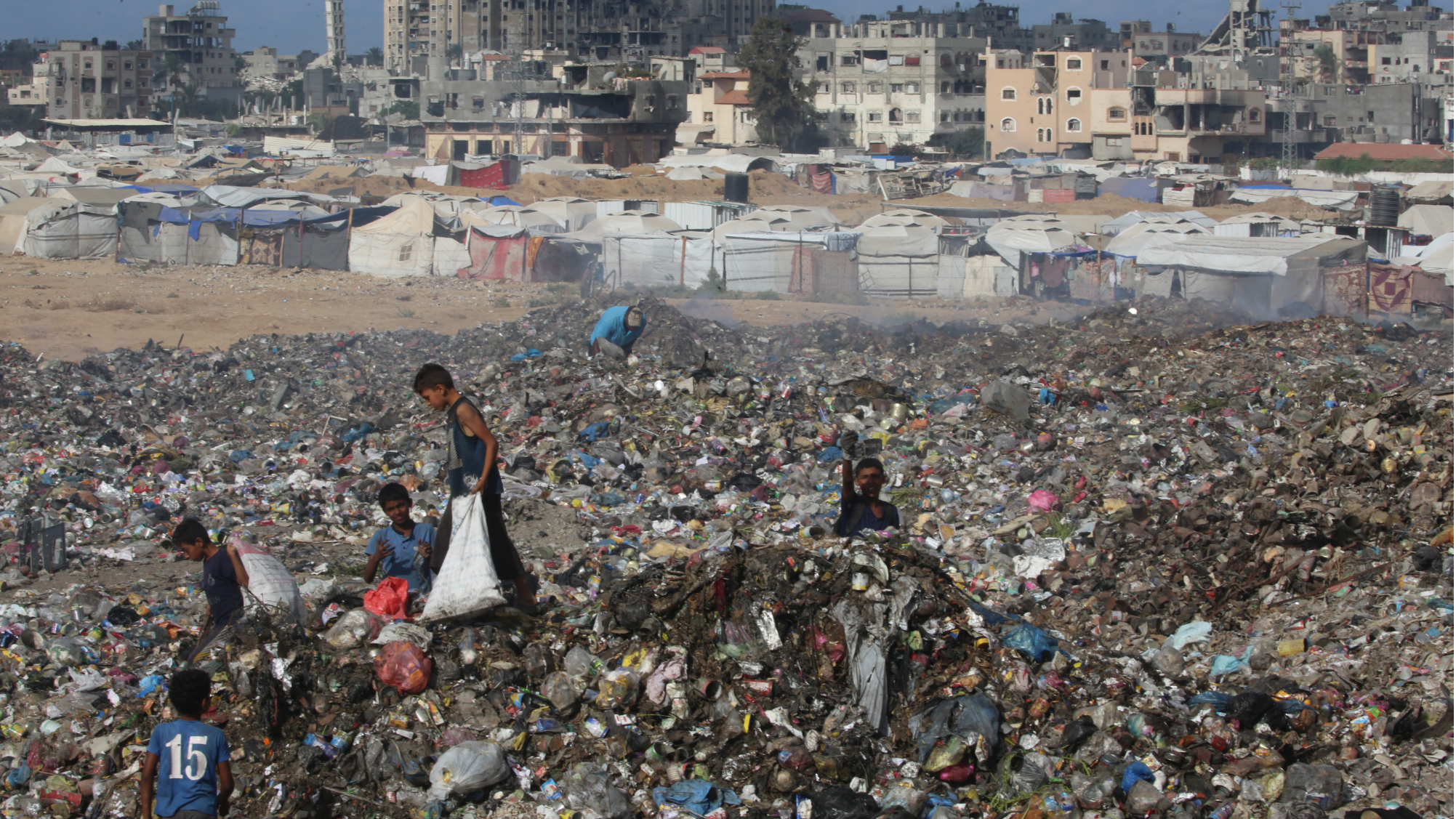
GAZA/CAIRO/JERUSALEM/GENEVA/AMMAN - The second day of indirect Gaza ceasefire talks between the Palestinian Islamic Resistance Movement (Hamas) and Israel, mediated by Egypt and Qatar, began on Tuesday in the Egyptian Red Sea resort city of Sharm el-Sheikh, an Egyptian source told Xinhua.
The source said the two sides focused on core issues, including a hostage-prisoner exchange, the entry of humanitarian aid into Gaza, and the transfer of governance in the Gaza Strip.
The source stressed that Hamas still seeks US and Israeli guarantees of a permanent end to the war, adding that this remains the main sticking point in the negotiations so far.
The talks, which started on Monday, center on implementing the 20-point peace plan proposed by US President Donald Trump, which Hamas has recently accepted in principle.
The first phase of the plan includes an immediate ceasefire and the release of all Israeli hostages, both alive and deceased. Israel believes 48 hostages remain in Gaza, 20 of whom are alive.
Hamas said it would only begin gathering Israeli hostages once Israel's military offensive in Gaza ends, arguing that the ongoing conflict prevents its operatives from safely collecting hostages from tunnels and other locations across the Strip, the source said.
In a separate demand, the group insisted on the release of high-profile Palestinian leader Marwan Barghouti as part of the prisoner exchange package.
On the future of Gaza governance, Hamas rejected the deployment of any foreign forces in the Strip but signaled it would welcome Arab forces operating in coordination with the Palestinian Authority, according to the source.
The group also explicitly opposed assigning former British Prime Minister Tony Blair to lead post-war governance in Gaza.
Hostage release
Meanwhile, a senior Hamas source said Tuesday the group has demanded that any release of Israeli hostages be "directly tied to" a clear timetable for Israel's complete withdrawal from Gaza, as the group's indirect negotiations with Israel continue in Egypt.
The Hamas delegation, during the negotiations in the Red Sea city of Sharm El Sheikh, insisted that "the release of the last hostage must coincide with the final Israeli pullout from Palestinian territories," the source told Xinhua on condition of anonymity.
Meanwhile, Hamas's senior official Khalil al-Hayya, who is leading the Hamas delegation, told Egypt's state-affiliated Al Qahera News TV channel on Tuesday that his group is ready "with all responsibility" to stop the war, and his delegation arrived in Egypt with the direct and explicit goal of achieving an immediate and permanent halt to the conflict as well as a prisoner-hostage swap.
Israel "continues its killing and destruction and repeatedly breaks its promises regarding halting aggression," al-Hayya said, urging "international guarantees to ensure a final and comprehensive end to the conflict."
ALSO READ: Indirect Hamas-Israel talks on Gaza ceasefire plan kick off in Egypt

Ceasefire talks 'difficult, complex'
The ongoing indirect ceasefire negotiations remain "difficult and complex," Palestinian sources said Tuesday as the second day of indirect talks got underway.
The sources close to Hamas said on condition of anonymity that the discussions are currently focused on setting up the "technical mechanisms" required to launch the first phase of Trump's plan to end the war in Gaza.
According to the sources, the plan stipulates that Hamas must release all hostages within 72 hours after both sides publicly agree to the proposal. In return, Israel would release hundreds of Palestinian prisoners and suspend military operations in Gaza.
Hamas announced on Friday that it was ready to release the Israeli hostages it holds in the enclave in accordance with the plan. Trump welcomed the statement and called on Israel to halt its bombardment of Gaza immediately.
However, the Palestinian sources noted that Hamas has yet to respond to several conditions Israel considers essential for a full ceasefire, particularly those related to the disarmament of Hamas and the future governance of Gaza.
They added that the technical teams are currently examining detailed maps submitted by the Israeli delegation outlining the areas from which the Israeli army would withdraw, as well as lists of Palestinian prisoners slated for release.
In parallel, Hamas has presented its proposed mechanisms for handing over hostages and the remains of deceased captives, while pointing to logistical and security obstacles due to the ongoing Israeli military presence in parts of Gaza.
Israeli media reported that US Special Envoy to the Middle East Steve Witkoff, along with Trump's son-in-law Jared Kushner, is expected to join the negotiations on Wednesday.
Israeli Minister of Strategic Affairs Ron Dermer may also take part later to finalize potential agreements, according to the reports.
Meanwhile, a spokesman for the Qatari Foreign Ministry said in a press briefing on Tuesday that the negotiations in Egypt "are ongoing and it is too early to speak of results."
He added that Trump's 20-point plan "contains many complex details" and accused Israel of prolonging the violence through continued airstrikes on Gaza, stressing that "the main challenge now is implementation, not consensus."
On Monday, Trump told reporters that he believed "things are going very well" and that Hamas had agreed to "very important things." He added, "We will reach an agreement in Gaza... I'm almost certain of that."
On the ground, Palestinian security sources said that while Israeli airstrikes and artillery shelling on Gaza have slightly decreased since dawn Tuesday, they have not completely stopped.
Palestinian medical officials told Xinhua that hospitals in Gaza have received 10 bodies since early Tuesday, including six in Gaza City, following overnight Israeli attacks.
Intensifies attacks
Also on Tuesday, the Israeli army launched air and artillery strikes across various areas of the Gaza Strip, coinciding with the second anniversary of the Israel-Hamas conflict.
Local sources and eyewitnesses told Xinhua that Israeli warplanes and drones targeted homes and apartments in various areas of the Gaza Strip, particularly the Sabra and Tal al-Hawa neighborhoods south of Gaza City, the Shati refugee camp west of the city, and the city of Khan Younis in southern Gaza.
Israeli artillery also shelled an apartment building in the al-Rimal neighborhood in central Gaza City and areas in the neighborhoods of al-Zeitoun, al-Sabra, Tal al-Hawa, Shuja'iyya, and al-Tuffah.
According to sources and eyewitnesses, military vehicles loaded with explosives were detonated near residential areas.
Meanwhile, Hamas said in a press statement on the second anniversary of the conflict that the Oct 7, 2023 attack on Israel marked "a major turning point in the political and military landscape of the region."
For their part, Palestinian resistance factions, including Hamas and Islamic Jihad, said in a separate statement that "resistance in all its forms will remain the only way to confront the enemy, and no one has the right to relinquish the Palestinian people's weapons."
Palestinian Prime Minister Mohammed Mustafa said at the start of his cabinet meeting in Ramallah that the people of the Gaza Strip "need our collective solidarity to heal their wounds and alleviate their pain."

UNICEF: Over 60,000 children killed or maimed
The United Nations Children's Fund (UNICEF) said on Tuesday that in the two years since the outbreak of the Israel-Palestine conflict, some 61,000 children have reportedly been killed or maimed.
Speaking at a press briefing in Geneva, Switzerland, UNICEF spokesperson Ricardo Pires said that, on average, one child has been killed or injured every 17 minutes, describing the figure as "unacceptable" and "staggering."
Pires deplored the facts that children have been "suffering in their bodies and their minds for way too long," remaining traumatized and "exposed to horrors that no child should ever have to look at or live."
He noted that in Gaza, one in every five children is born prematurely, but the territory lacks the necessary infrastructure to ensure their survival, with reports that children are forced to share oxygen masks to stay alive.
UNICEF also noted that its teams in Gaza are still waiting for a green light to fetch incubators and ventilators for premature babies evacuated from the north of the Strip.
"We've managed to move the babies to another facility when the hospital they were in needed to be evacuated, but we haven't managed to move the incubators... it's been denied so far," said Pires.
Global Sumud Flotilla
The Jordanian Foreign Ministry announced on Tuesday the arrival of a Jordanian national and 130 foreign citizens who were aboard the Global Sumud Flotilla, an aid mission bound for Gaza, through the King Hussein Bridge.
Ministry Spokesperson Fouad Majali said in a statement that the ministry, in coordination with the relevant authorities, facilitated their entry into the kingdom and provided the necessary assistance.
He added that the ministry also coordinated with the embassies of the concerned countries to arrange the departure of their nationals from Jordan.
Meanwhile, among the latest group of arrivals were 14 Turkish citizens, Türkiye's Foreign Ministry Spokesperson Oncu Keceli said on social media platform X.
"They will fly from Amman to Türkiye, completing the return of all Turkish participants of the flotilla to the country," he added.
The Global Sumud Flotilla, carrying humanitarian aid bound for Gaza, was intercepted on Thursday by Israeli naval forces in international waters.
According to media reports, Israeli forces intercepted 42 vessels during the week and detained more than 400 activists in the confrontation, which reportedly occurred between 70 and 100 nautical miles off the coast. A total of 137 participants were flown to Türkiye on Saturday.



